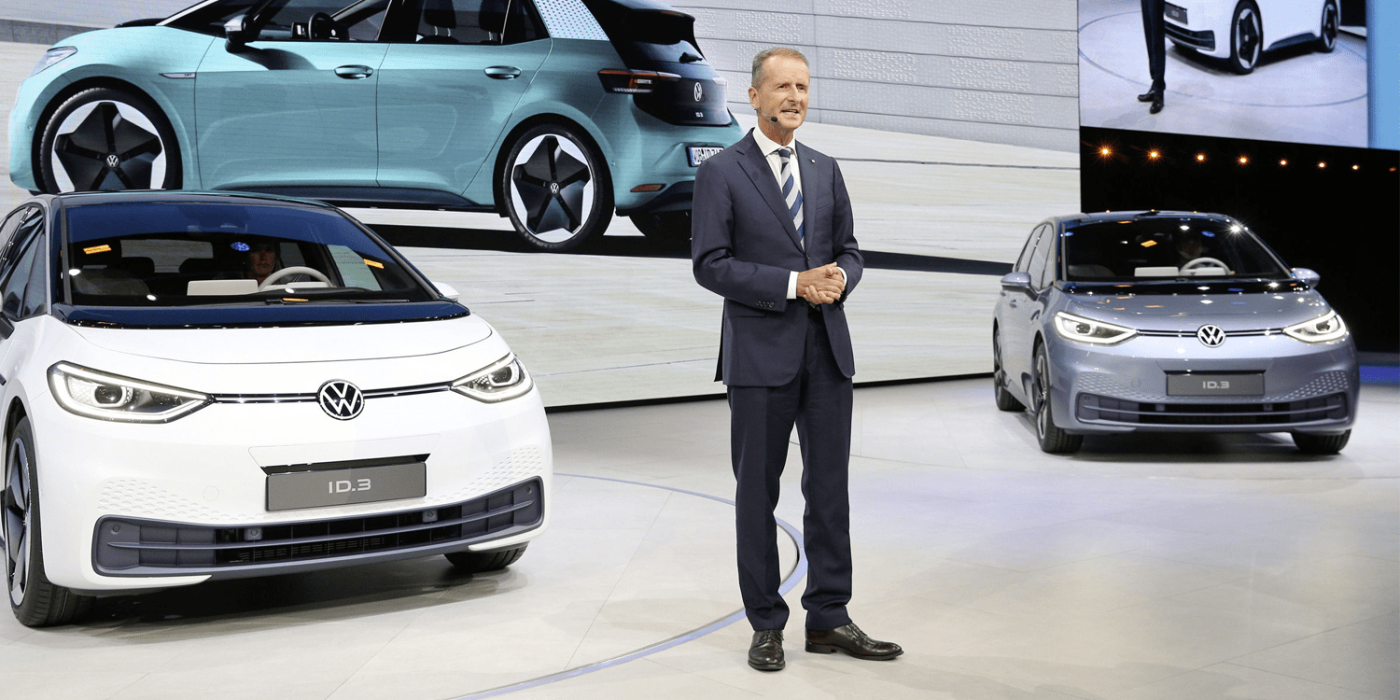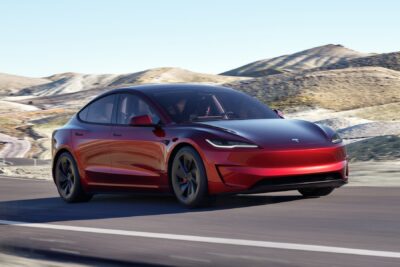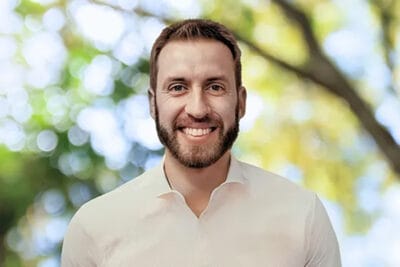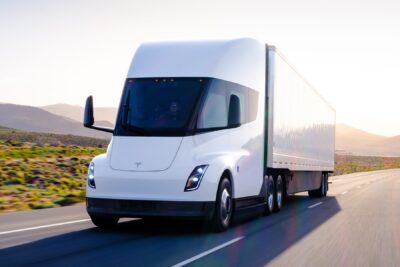Diess to leave VW in September with Blume set to take over
Volkswagen announced a surprise change of boss on Friday evening: CEO Herbert Diess is leaving the company at the end of August. On 1 September, Porsche boss Oliver Blume will take over and lead both companies in parallel.
Although there had been repeated reports in recent years about a possible departure or sacking of Diess, the last time the Austrian had to fear for his job was in December 2021 – after a conflict with the powerful works council. The announcement of his actual departure on Friday evening after the close of the stock exchange nevertheless came as a surprise – that very afternoon Diess had sent a holiday greeting before going on his summer holiday in a LinkedIn post.
There are no official details on the reasons for the departure. The company’s announcement states that Diess is leaving as CEO “by mutual agreement”, and there is also talk of a generational change.
“During his tenure as Chairman of the Board of Management of the Volkswagen Passenger Cars Brand and as Chairman of the Group Board of Management, Herbert Diess played a key role in advancing the transformation of the company,” said VW supervisory board chairman Hans Dieter Pötsch. “The Group and its brands are viable for the future; its innovative capabilities and earning power are strengthened. Mr. Diess impressively demonstrated the speed at which and consistency with which he was able to carry out far-reaching transformation processes.”
Porsche-Piech family withdraws confidence from Diess
During this transformation and the numerous quarrels Diess always had the support of the Porsche-Piech family but this is clearly no longer the case. As the German publication Handelsblatt writes with reference to corporate circles, the owning family not only approved of the departure, it is even said that “the initiative to kick him out” came from the Porsches and Piechs. “The final impetus” was primarily the dispute over the orientation of the software subsidiary Cariad, where Diess had taken over the chairmanship of the supervisory board from Audi boss Markus Duesmann some time ago. Diess is therefore partly responsible for the delays, which reportedly have an impact on important electric vehicle model launches.
Diess had once moved from BMW to Volkswagen when he lost out to his former board colleague Harald Krüger in the duel to succeed Norbert Reithofer. Diess initially became brand manager of Volkswagen in the spring of 2015, with Martin Winterkorn as chairman of the board. After the diesel scandal came to light, in which Diess was also incriminated in the meantime, Winterkorn had to leave and the then Porsche boss Matthias Müller took over – but Diess was able to remain brand boss. In 2018, Müller took his hat off and Diess became – in personal union – brand and group CEO in Wolfsburg.
Subsequently – also under the fallout of the diesel scandal – Diess restructured Volkswagen. Like no other volume manufacturer at the time, VW focused on the transition to electromobility. Instead of an e-Golf with a retrofitted electric drive system, Diess opted early on for his own electric platform, the MEB. The other group brands also followed the electric strategy. Diess also laid the foundations for the VW Group to build its own battery cells in the future – his predecessor Müller had still called this “bullshit”. As chief supervisor Pötsch also states; “Not only did he steer the company through extremely turbulent waters, but he also implemented a fundamentally new strategy”.
Whether this strategic realignment will receive a further realignment remains to be seen. In September, Porsche boss Oliver Blume takes over in Wolfsburg, who in turn succeeded Müller, who was recalled to Wolfsburg, in 2015. Among the premium and sports car brands, Porsche has one of the sharpest electrification strategies. In 2030, with the exception of the 911, all of the Zuffenhausen model series are to be electric. This has already started. If the Taycan was still a new model as the first electric Porsche, the new generations of the Macan and the mid-engine sports cars 718 Boxster and Cayman will only be electric – what is still missing for the E-Macan is the Cariad software.
The very fact that not only SUVs and sedans will be converted to e-drives, but also the 718, is actually a sign of how serious Porsche and Blume are about electromobility. However, unlike Diess, Blume is also relying on e-fuels in order to be able to operate the 911 with combustion engine and the numerous Porsche classic cars that are still registered in a CO2-neutral way. But e-fuels are controversial because of their high primary energy demand and costs.
What are Blume’s plans for e-fuels?
Whether Blume sees e-fuels only in expensive sports cars for the correspondingly affluent clientele or whether combustion engines with synthetic fuels will be kept alive a little longer in the group’s volume models as well, is currently still open. Unsurprisingly, there are no statements on this in the VW Group’s and Porsche’s announcements.
According to the Handelsblatt article, the leadership issue in the group was less about drives and technology strategies, but about the leadership itself. According to an insider, Diess’ unilateral actions – for example, when he surprisingly questioned 30,000 jobs at the main plant in the supervisory board – and his provocative leadership style endangered the cohesion within the group. There was a need for a CEO who was taken seriously by his managers. “There was hardly any basis left for proper cooperation,” the insider said. “In reality, it’s an outright sacking so that the group becomes workable again.”
The supervisory board trusts Blume, who was born in Braunschweig and is considered to be an outstanding team player. At least externally, the CEO is not known for having acted alone in Zuffenhausen but rather the board of directors always acts as one. The supervisory board more or less communicates this directly about Blume in their statement on the executive change: “Blume is also to continue to drive forward the transformation with the entire executive board – with a leadership culture that places the team concept at the centre.”
In a statement from Porsche, the new VW CEO indirectly addresses this issue: “I am very excited to lead both Porsche AG and the Volkswagen Group. My focus will be on the customers, brands and products. The human component is always at the forefront for me,” says Blume about the new task. “The Porsche team can rely on me to lead the company over the long term – also after a possible IPO. We have put Porsche on a successful footing technologically, financially and culturally – and see ourselves as a leader of sustainable mobility.”
“Oliver Blume has proven his operational and strategic skills in various positions within the Group and in several brands and has managed Porsche AG from a financial, technological and cultural standpoint with great success for seven years running,” said VW Supervisory Board Chairman Pötsch. “From the Supervisory Board’s point of view, he is now the right person to lead the Group and to further enhance its customer focus and the positioning of its brands and products.”
With reporting by Sebastian Schaal, Germany.
volkswagen-newsroom.com, porsche.de, handelsblatt.com (in German)





0 Comments